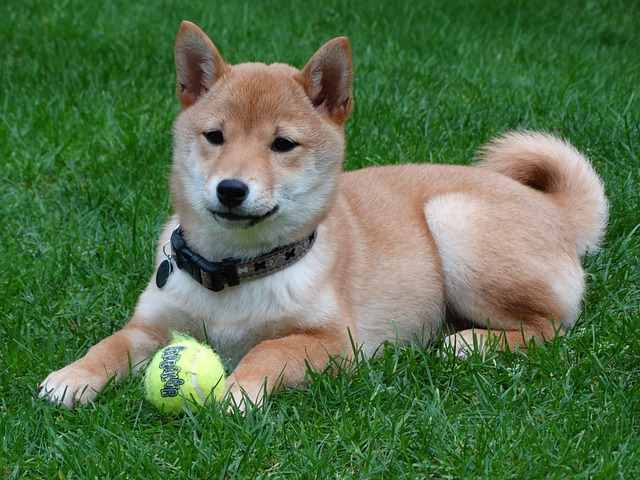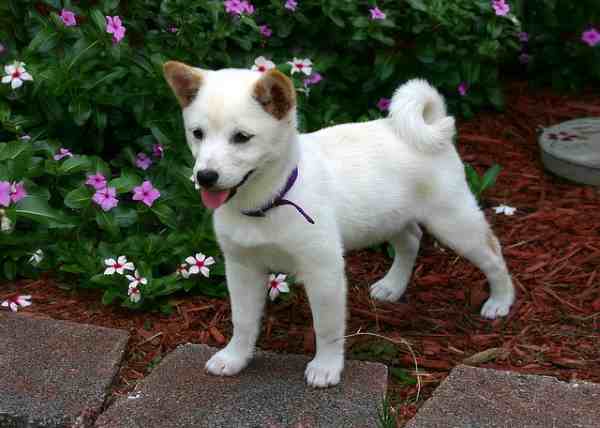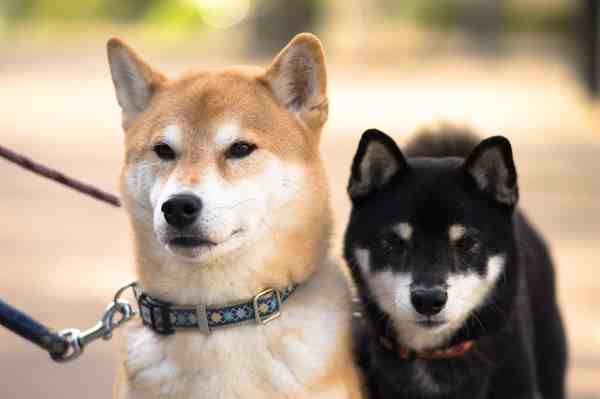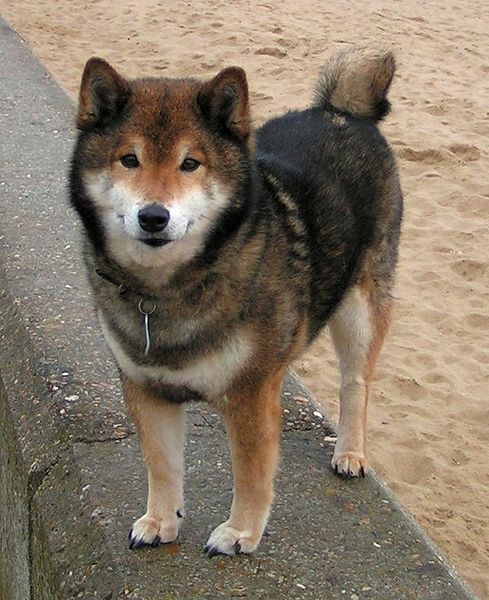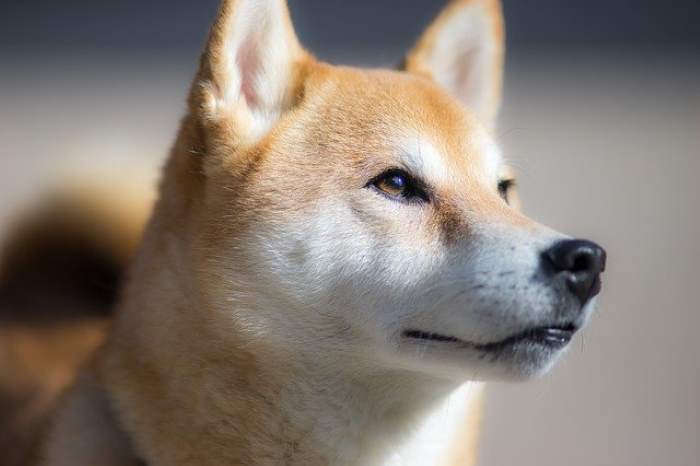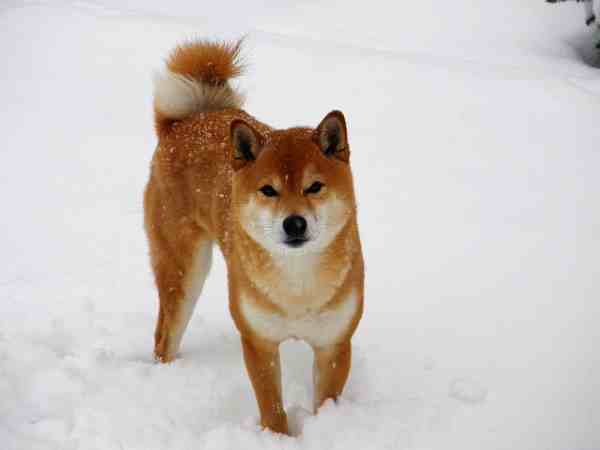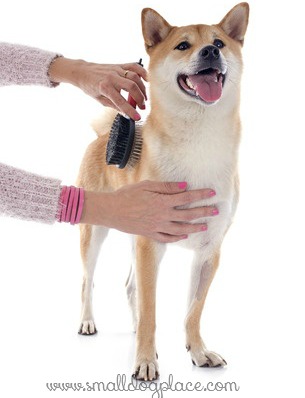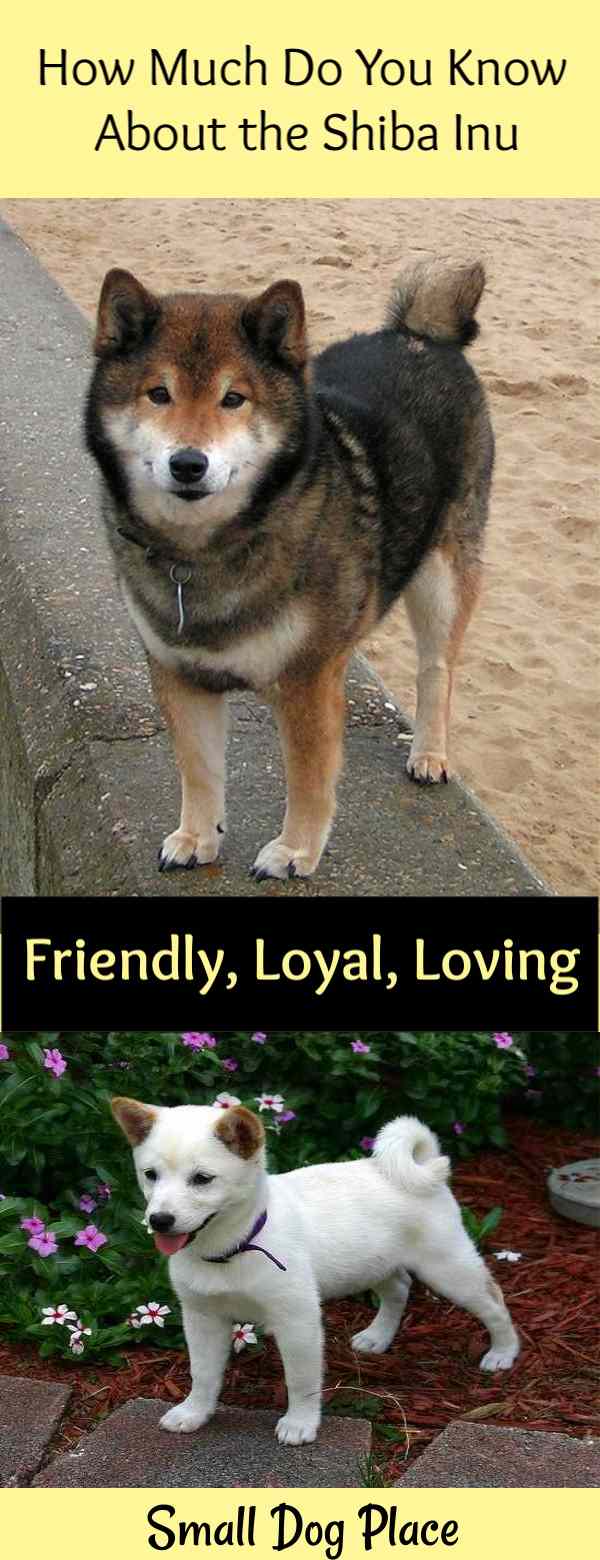- Small Dog Place Home
- A to Z Breed List
- Shiba Inu
The Shiba Inu
Independent - Aloof - Intelligent
By Janice Jones |Updated 04-28-2024
Are you one who thinks the Shiba Inu resembles a fox? You won't be alone, many people fall in love with that cute, fox-like appearance. Their facial expressions melt many hearts and one might think they are just smiling at you.
Appearances, though important are not everything. They also come with an amazing personality, but this breed is definitely not for everyone. With that beautiful smile comes some traits that many new dog owners are not prepared to handle.
The Shiba Inu Breed at a Glance
| Traits | Rating |
|---|---|
| Playfulness | |
| Affection Level | |
| Friendliness Towards Strangers | |
| Good with Children | |
| Good with Other Dogs | |
| Good for First Time Owners | |
| Exercise Needed | |
| Ease of Training | |
| Watch Dog Ability | |
| Grooming Requirements | |
| Shedding | |
| Cold Tolerant | |
| Heat Tolerant |
Dog Breed Ratings Got You a Little Confused?
Here's a little help in understanding them
- Playfulness: Most Playful = 5 Least Playful = 1
- Affection: Most Affectionate = 5 Least Affectionate = 1
- Friendliness Towards Strangers: Most Friendly = 5 Least = 1
- Good With Children: Great= 5 Not Good with Children = 1
- Good With Dogs: Great = 5 Not Good Around Dogs = 1
- Good With First Time Owners: Fine=5 Not Appropriate = 1
- Exercise Required: Extensive Daily Exercise = 1 Minimal = 1
- Ease of Training: Very Easy = 5 Difficult = 1
- Watch Dog: Excellent Watch Dog = 5 Minimal = 1
- Grooming: Time Consuming = 5 Minimal = 1
- Shedding: Heavy Shedder = 5 Minimal = 1
- Cold Tolerance: Well Tolerated = 5 Poor Tolerance = 1
- Heat Tolerance: Well Tolerated = 5 Poor Tolerance = 1
They are extremely intelligent and during an earthquake in 2004, a Shiba in sought out and guided rescue personnel to where his owners were trapped. His owners were an elderly man and his granddaughter, so it was amazing that a little dog saved their lives.
I'm, not saying that if you welcome a Shiba Inu into your home, they could save your
whole family in any natural disaster, but it demonstrates how loyal they are to
their owners.
If any of these traits or characteristics is something that you might like in a furry friend, then the Shiba Inu may be your perfect match.
Quick Facts
Other Names Used: Japanese Shiba Inu, Japanese
Small Size Dog, Shiba, Shiba Dog
Affiliation: Non-Sporting group; AKC recognized in 1992, also registered with CKC, FCI
Size: Varies: 15-20lbs called a "Mame," but quite rare in the U.S.
Average size is 20 to 28 pounds but can be as large as 35 lbs.
AKC Standard states: Males 14½ to 16½ inches at withers. Females 13½ to 15½ inches. The preferred size is the middle of the range for each sex. Average weight at preferred size is approximately 23 pounds for males, 17 pounds for females. Males have a height to length ratio of 10 to 11, females slightly longer.
Coat Type: dense, self-cleaning, shorthaired double coat
Colors: Red, sesame, black and tan, or white
Country of Origin: Japan
Activity Level: moderate to high
Life Expectancy: 12-15 years
Good with Children: These dogs do not make good family dogs and you should never leave a young child alone with one. Often the reason these dogs are surrendered to shelters and rescues is because they don't want to share the house with small children and are fearful of their movements.
Good with Other Pets: They cannot be trusted alone with small pets such as hamsters, rabbits, guinea pigs, etc. Some do well with other dogs and coexist with cats, and some do not and no training will change that. Some Shibas distinctly do best as an only dog.
Other Shibas distinctly do best with other dogs. It's up to that individual, and a keen understanding of the particular dog, and the environment that he/she is best suited for. Some have a problem with resource guarding making them less dependable around other dogs.
History of the Shiba Inu
Shiba Inu, which actually means “brushwood” in Japanese, are one of the oldest breeds of dog. They are also the smallest of the Japanese native breeds. Shiba Inu also can mean “small,” and their name might have come from their size, or the terrain where they hunted.
They were first bred to hunt boar, birds, and even bears. In 1936, Japan declared the breed a national treasure. Like many breeds, during World War II, the breed was nearly flushed out. Fortunately, after the war a few breeding programs worked really hard to bring the breed back.
The Shiba was first documented in the U.S. in 1954, but the breed was not officially recognized by the AKC until 1992. They became the AKC’s 136th breed. They now remain one of the most popular breeds in Japan and are making their way up the chart in America and the United Kingdom.
Personality
Ease of Training
The Shiba Inu is very intelligent, but they are also very independent. This can be a good or a bad thing for them. This trait mixture means that they are extremely difficult to train. They are actually said to be one of the most difficult breeds to train.
Shibas are smart enough to blow you off if they know you don’t mean what you say. They are better for owners who have experience with training and other dogs. They may not be the best match for first time dog owners, or the average pet owner.
Training needs to be positive as any harsh training methods will backfire on the trainer. Shibas have been known to permanently shut down to anyone who treats them harshly.
Friendliness, Loving, Loyality
Their fastidious and independent nature may be mistaken for rude or unfriendly. They may not be that warm and welcoming to strangers, but they are very closely bonded to their families.
They remain loyal throughout their lifetime. Once they feel comfortable in their environment, they are compassionate, loving, and will do anything for their owners.
Active, Apartment Friendly? Maybe
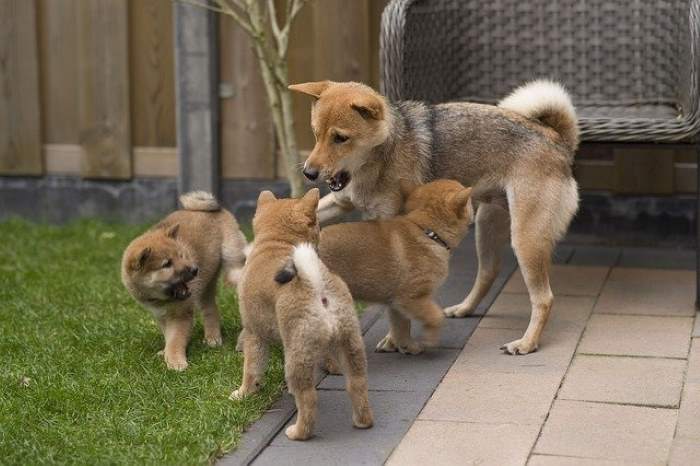
Shibas are also very adaptable, and adapt to almost anything. Some may do well in apartments, but most have a tendency to bark, a trait that might not make them the best candidate for apartment living. However, if they do live in a smaller space, they will need frequent and robust exercise on a daily basis.
These guys are moderately active indoors and will do just fine with an average sized yard, outdoors. They also love daily walks and lots of attention. Even though they appear independent, they crave the attention of their owners.
Leaving them alone for long periods of time can be problematic as they can develop separation anxiety.
They have a personality that is somewhat similar to that of a cat. Independent and constantly primping, many Shiba owners claim that their pup shows some feline behaviors.
This breed of dog loves to keep itself clean and will avoid rain or mud puddles. These pups actually do very well traveling as well, which is good for people who travel or move around a lot.
Dogs, Kids, and Strangers
Like most breeds, they need to be
socialized at a very young age. The younger, the better when it comes to this
breed. As natural born hunters, they like
to show their independence and can be stubborn and narrow-minded when it comes
to authority.
Socialization will also help a little with their reserved behavior towards strangers.
If they are not convinced that their owner is a strong and confident pack leader, they will take this to their advantage and try to reserve the spot of authority. The most important thing to know about owning is Shiba is to keep good human to canine communication. This is vital with this breed.
Beware of Prey Drive Tendencies
Since the Shiba Inu was bred to hunt, when they are on walks, they have a tendency to want to run or dart off they see an interesting critter. Keep this in mind when letting them off of the leash.
If they see another dog or mainly a small squirrel, chipmunk, or bunny, they will most likely try to chase it to fulfill their hunting needs. Daily exercise and walks can help with any behavioral issues that they might be having.
Best Shiba Inu Owners
By now, it should be clear that this breed is not for everyone, despite their cute appearance. Who makes the best Shiba Inu Owner?
According to Adrienne Rowles, Director of the Shiba Rescue New England, a well adjusted Shiba hates chaos and prefers 1-2 people in the household. Some Shibas will chose their person and pick on the weaker person in the home.
The best owners enjoy an active lifestyle of hikes and adventurous walks. Dog parks may be ideal for younger Shibas but older ones would find them too stressful.
Young couples planning to start a family (of human children) might be wise to reconsider their decision to own a Shiba. Infants might be tolerated, but once those infants begin to walk and mature into busy toddlers, the Shiba Inu is not likely to trust those sudden movements and the constant activity in which toddlers are so famously capable of engaging.
Grooming
Shiba Inus are actually very clean dogs. They like to primp themselves and are fastidious with their appearance. Their dense, self-cleaning coat keeps them warm in cooler weather and helps keep them clean by repelling dirt and other natural elements.
Since they groom themselves, they do not need to be bathed as much as one might think, but since they have a thick double coat, regular brushing is required. A simple brush with a firm bristles will do the trick. Pin brushes also work well.
The do shed and do so heavily about twice a year. Deshedding combs, such as Furminators work great during these times. You can use them year round to prevent too much hair from landing on sofas and carpet. Since they do shed heavily when seasons change, this breed is not recommended for those who have allergies.
Bathing daily or weekly is not recommended because it strips their coat of the weatherproofing of the coat. They need the most grooming in warmer months when they are shedding.
Beyond coat care, they need attention to their dental needs. If you can't brush their teeth everyday, strive for once per week. Another option is to try a water additive or dental spray.
Check ears periodically and clean if necessary.
Healthy nails grow quickly, so a trim or grind about every 3 weeks will keep the nails at a good length.
"The grinding speed required for smaller nails is less, and you also need to apply less pressure, so you don’t cause injury to your dog’s nails."
If you find that your Shiba is uncooperative when it comes to grooming, you may need to enlist the help of a professional groomer. Groomers who work in veterinary hospitals may be ideal especially if your dog needs some sedation to relax him for such things as nail trims or ear cleaning.
If you want to do it yourself and find yourself with a dog that hates to have his nails done, consider asking your vet for a small supply of sedatives.
Give them the correct dosage about 45 minutes before you are ready to groom him. Observe his reaction and report back to your vet as sometimes the dosage may need to be altered for future manicures.
Health Concerns of the Shiba Inu
Shibas are very healthy dogs and do not have many serious health concerns. They are prone to the typical diseases of any small or medium size dog, but other than that, you probably won't need to worry about a large vet bill with this breed.
Some Shibas are prone to skin allergies. You will know if your Shiba has a problem if you see them scratching, have reddened skin and hair loss.
Some of the allergies are due to flea allergy dermatitis (FAD), a condition where a single flea bite can cause a severe allergic response. These dogs are also susceptible to food allergies an inhalant allergies. All of these allergies usually manifest themselves with the skin problems mentioned above.
These problems are treatable with the guidance of your vet.
From a genetics' point of view, the National Shiba Club of America recommends that breeders test for eye problems, knees and hips.
Pros:
- Very loyal and loving to their trusted owner
- Intelligent
- Healthy breed
- Can adapt to almost any living condition
Cons:
- Heavy shedders
- Tough to train; not recommended for first time dog owners
- Not very warm or welcoming to strangers unless well socialized
- Can be difficult to walk because of hunting instinct
- Can be very vocal
- Can't be trusted with small animals
- Caution is highly recommended around children
Resources and Further Reading
Breed Club: National Shiba Club of America
Before looking for a puppy or an adult dog, we recommend you do your homework. These books below are all available from Amazon and provide valuable information and help when making your final decision.
About Janice (author and voice behind this site)
Janice Jones has lived with dogs and cats for most of her life and worked as a veterinary technician for over a decade. She has also been a small-breed dog breeder and rescue advocate and holds academic training in psychology, biology, nursing, and mental health counseling. Her work focuses on helping dog owners make informed, responsible decisions rooted in experience, education, and compassion.
When not writing, reading, or researching dog-related topics, she likes to spend time with her six Shih Tzu dogs, her husband, and her family, as well as knitting and crocheting. She is also the voice behind Miracle Shih Tzu and Smart-Knit-Crocheting
Does This Article Deserve Your Thumbs Up?
We always appreciate your support and encouragement. Your thumbs up means so much to us. Please like this article.
If you find this page or any page on Small Dog Place Helpful, or useful in anyway, I'd love it if you would click the small heart found on the bottom right of each page.
You can also share or bookmark this page -- just click on the:

Free Monthly Newsletter
Sign Up for Our Free Newsletter and get our Free Gift to You.
my E-book, The Top 10 Mistakes People Make When Choosing a Dog (and how to avoid them)
